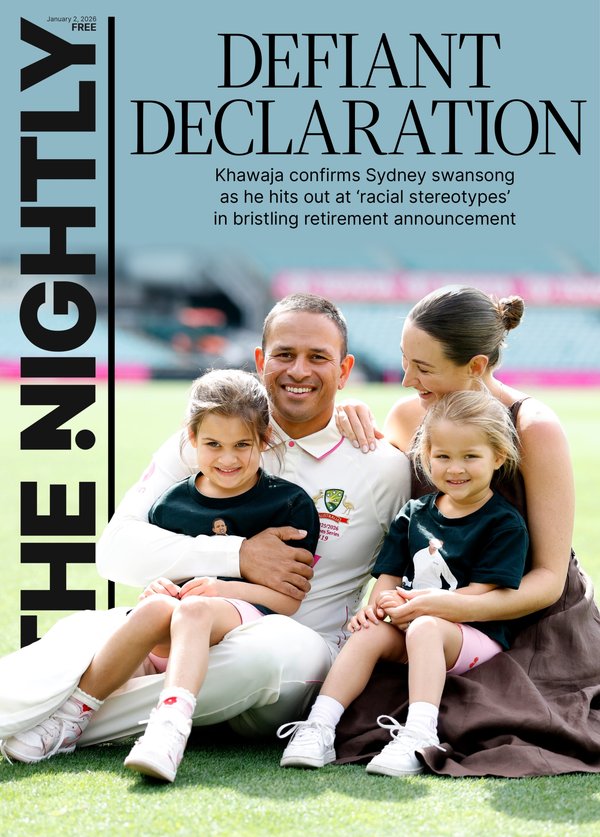Made Up Stories’ Jodi Matterson: The women who changed my life
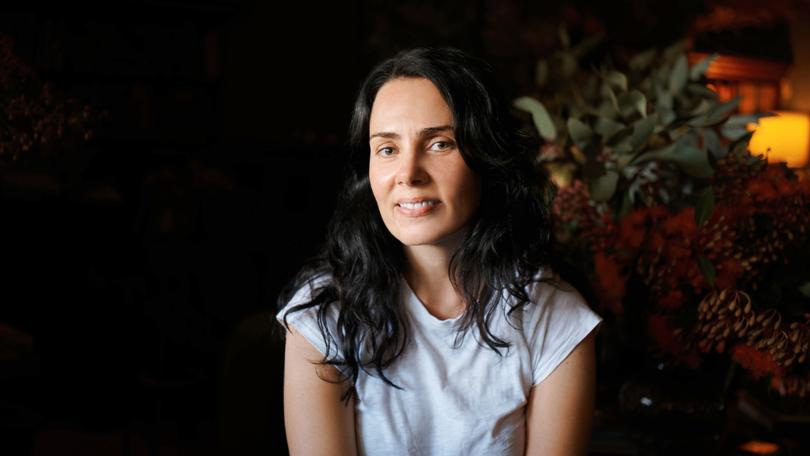
Decades before Jodi Matterson was running sets for productions starring Nicole Kidman, Sigourney Weaver and Eric Bana, she was a child actor.
A producer of some of Australia’s biggest streaming series and movies of the past five years, including The Dry, Nine Perfect Strangers and The Lost Flowers of Alice Hart, Matterson, with her partners at Made Up Stories, has overseen projects with a collective budget running into the hundreds of millions.
But producing is one of those mysterious jobs that outsiders (and even some insiders) don’t understand. “How one actually becomes a producer and make movies and TV shows, that was so far from my world,” Matterson told The Nightly of her early years.
Sign up to The Nightly's newsletters.
Get the first look at the digital newspaper, curated daily stories and breaking headlines delivered to your inbox.
By continuing you agree to our Terms and Privacy Policy.“They say, ‘You can’t be what you can’t see’ and there was no real path.”
When she was 18, Matterson had given up on acting, and wanted to be the next Jana Wendt. While studying to be a journalist, she set up a side hustle of staging fairy and pirate parties with her out-of-work actor friends, and that led to a fortuitous encounter.
At a kids party she was running for the Starlight Foundation, she met two people who would change her life – Al Clark and Andrena Finlay, a husband-and-wife producing team whose children had been guests. Talk about kismet.
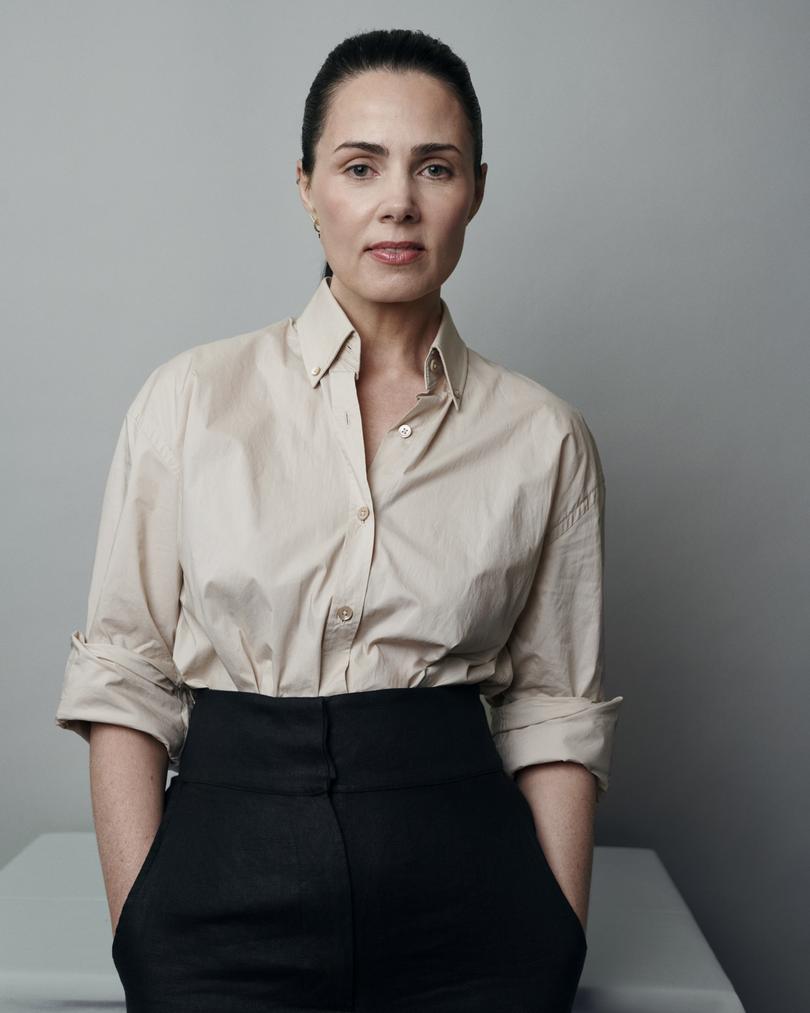
“One of them said to me, ‘Have you ever thought about working in film?’ I said ‘No, but that would be my dream job’,” Matterson said. She went to work for Finlay as her assistant, and Finlay became Matterson’s first mentor.
“I learnt the business from her and she was such a generous teacher,” Matterson recalled. “It was like going to film school because she exposed me to every element.
“It was incredible insight and I knew that first day that I wanted to be a producer. It was like, ‘OK, I found it’. It brings together everything I wanted to do with my life – the creative side, which is finding projects, developing scripts with writers, collaborating with directors and casting, and it’s also the business side of raising money, doing budgets and managing productions.
“Because I saw such a strong female producer in Andrena, it made me go, ‘I can do this’ because I can see this very strong, capable woman who is doing her thing. Although it is a very male-dominated industry, I’ve been incredibly lucky to have these female mentors all along the way in my career.”
That also included Helena Harris, who created Bananas in Pyjamas and co-created children’s entertainment group, Hi-5.
“I went to work for Helena and managed the group and did all of their videos, CDs and merchandising for them and their live shows. She was not only producing the show, she was driving this massive merchandise business. And I learnt so much from her, to be able to see the skills she had was incredible.”
One of the most important professional relationships she would form with another woman would be Bruna Papandrea, Matterson’s now partner at Made Up Stories. Papandrea’s husband, Steve Hutensky, is the third partner in the business.
Papandrea had credits on the likes of Milk and Smart People, and would go on to form a production company with Reese Witherspoon, shepherding the likes of Gone Girl, Wild and Big Little Lies.
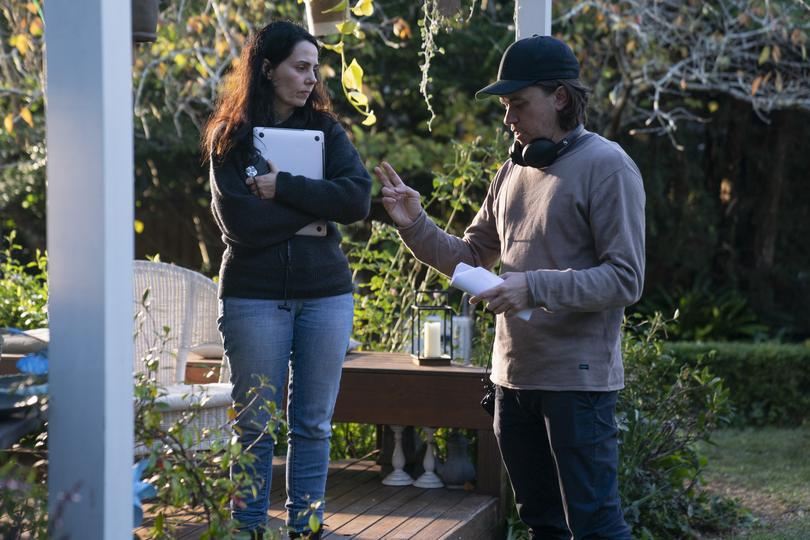
“I really admired Bruna because she’d gone to America and she was making great things,” Matterson said. “So I asked her to come and be my executive producer on this independent movie I did called Not Suitable for Children.
“When she wanted to form Made Up Stories [in 2017], I was in. I want to be the Australian arm and create stuff with her. She’s been an incredible mentor and partner to me because getting the benefit of her international experience has been wonderful.”
Then there was Barbara Gibbs, a line producer (a role which oversees operations and logistics on set) Matterson met on her first movie, Thunderstruck, who she called a “national treasure”.
“She started line producing the year I was born. She did my first movie and she taught me so much about production and did it in a way where I had still had control of it. She was a fantastic mentor and resource that helped guide me through that experience.
“I still work with her today, and that was 21 years ago.”
Matterson’s experience with Gibbs, the mentoring ideal of guidance and empowerment is how she models the way she pays back the help she received along the way to the women coming up behind her.
“I always try to look for opportunities to help women move into the next step,” she explained. “But it has to be the right opportunity and you have to put the right scaffolding around them because you want to set them up for success.
“So if you know that they can do it and they are ready to step up and maybe sometimes they don’t know it themselves, you have to give them a little push.”
On the second season of Isla Fisher and Josh Gad comedy Wolf Like Me, Matterson promoted Loretta Cosgrove to the head of the art department after she was number two on the previous season.
“We couldn’t have the same designer who worked on season one, they weren’t available and we thought, ‘Is it Loretta’s time to step up? Is this the opportunity for her?’ And it was. She had the right team around her and she got the support she needed and she absolutely knocked it out of the park. She just needed that one break for people to say, ‘You know what, you can do this’. And she’s now gone on to design for other shows.”
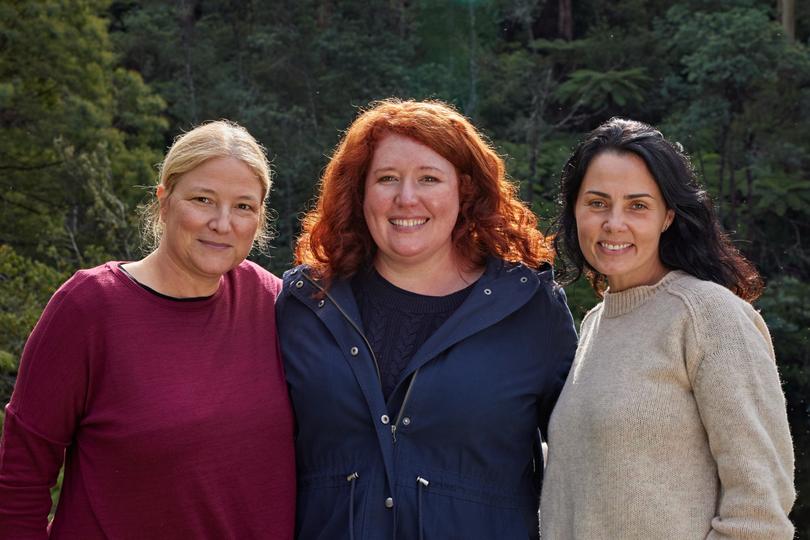
Matterson also name-checked Marcelle Lunam, the director of the upcoming film Addition, a rom-com starring Teresa Palmer. “She had never directed a movie before. She’d done commercials and film clips, and she’d been an animator and was a creative director of a clothing label, but she’d never had the opportunity of directing a movie.
“We had this project and we asked her to pitch on it, ‘give us your vision, give us your idea’, and we met a bunch of directors and she’d absolutely killed it.
“And this is a 60-year-old woman doing her first film. She missed her time before but now all her life experience and everything she had done set her on this new path.”
Not long ago, the ratio of women to men on a film or TV set was like a building site.
“That’s the energy that a very male-dominated workplace has, so, to me, having women there makes it more fun and it’s a better energy. These women are so creative, passionate and driven and it’s a great place to go to work. As a female producer, I love having that female energy around me on set,” she said.
Having more women behind the camera inevitably leads to what audiences see on screen. Almost all of Matterson’s recent work has platformed women’s stories, centred on complex characters with pain, history and flaws.
“Back when I was starting out, there was a real sense that women had to be likable all the time, so I really feel like we’ve come a long way.
“Don’t get me wrong, it is still hard to sell female-driven shows and movies. It’s still a battle because there are only so many seats at the table still.
“But when we’re pitching shows to different financiers and streamers, the make-up of the people we’re pitching to feels like it’s more balanced. It’s not just middle-aged white men who are making these decisions. The decision-makers are reflecting our world more.”

